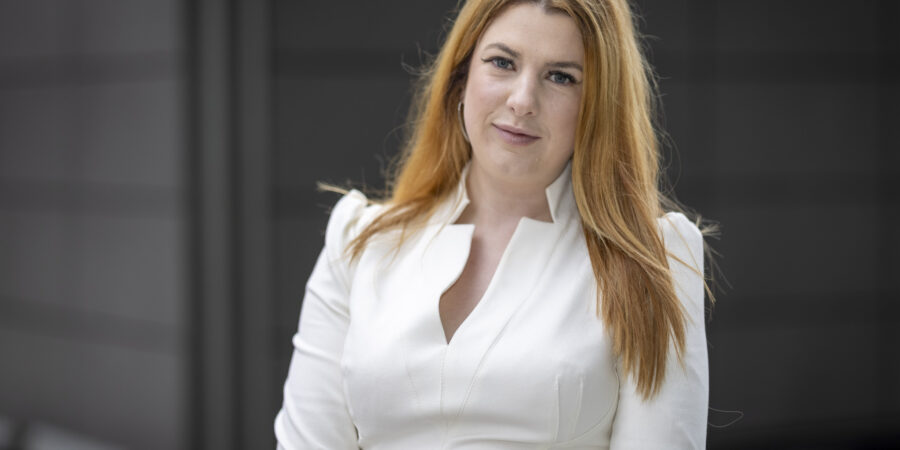Today (Tuesday 8 March) we’re celebrating International Women’s Day and thought we’d let you know about all the work we’ve been doing to address violence against women and girls.
We recognise that recent events involving police officers’ behaviour has damaged our legitimacy and had a deeply profound impact on people’s trust and confidence in us, particularly with women and girls.

People around the world were asked to take photos of themselves with their arms crossed at the wrist to show solidarity for gender equality.
We accept that we can and must do better to listen to women’s voices about what needs to change and our work to do this has been ongoing for many months.
We started with a survey which we invited you to take part in, to tell us about your concerns and how we can help you feel safer.
This has been the foundation for much of the work we are now doing and was also addressed in the Police and Crime Commissioner (PCC) Simon Foster’s, Police and Crime plan.
We’re making changes and improvements in seven key areas:
• Safety in public
• Criminal justice
• Offender/suspect management
• Recording of crime and incidents
• Our behaviours
• Intelligence and data informed processes
• Engagement, insight and the way we communicate with you
We continue to work closely with our partners to deliver these improvements. For example we have Safer Streets funding from the OPCC which includes police operations to spot and deal with potential male perpetrators, better education for young men on respecting women and girls and work with partners to make practical improvements to our streets including lighting and CCTV.
Together, we have also recently launched a campaign where we’re asking men to be upstanders for women’s safety, not a bystander to intimidation and violence.
As part of this we’re asking men to make small changes to their behaviour such as giving women space out on the street and on public transport. They also tell men to show respect for women by not wolf whistling and encourage them to challenge bad behaviour in other men.
The Violence Reduction Unit (VRU) have a range of preventative programmes in educational settings to explore harmful sexual behaviours, gender stereotyping, consent, relationships and coercive behaviours, which aim to improve young people’s respect for others.

We’re now using the Safestreet online reporting tool where you can report issues directly to us. Over 600 reports have been made to date and we’re working with partners to deliver changes to help make you feel safer.
We are also supporting a national campaign called ‘Enough’, the aim is to challenge perpetrators and raise awareness of what we can all do safely to call out abuse.
We continue our work to address male predatory behaviour in the night time economy, our briefings always prioritise violence and intimidation against women. We’re working with local universities to make improvements to walking routes into our city centres.
We’re training many of our officers in trauma informed practices so they have a better understanding of a victim’s needs and we have recently established a victim voice forum to ensure we listen to those reporting crimes and learn and improve as a result.
We’ve set up a rape scrutiny panel which seeks to review decisions where we review decisions around case disposals.
We’re auditing some of our investigations to look at efficiency, effectiveness and timeliness as well as making improvements to how we deal with stalking and harassment.
A text survey has been set up for victims to better understand their views on how we are doing which we hope will shape improvements and enhance trust and confidence.
We are now prioritising how we manage forensics to ensure the most serious offences are dealt with in a timely way.
In addition, we’ve increased our focus on perpetrators with careful consideration being given by our offender management teams to those who cause harm to women.
Internally we continue to review and improve our own behaviours. A range of measures have been taken to address issues concerning sexual harassment in the workplace and appropriate behaviour when dealing with vulnerable victims. Poor behaviour will be challenged and not tolerated.
Assistant Chief Constable Claire Bell, who is leading on this work, said: “We are really passionate about getting this right. We want women and girls in our region to feel safer and see that we are committed to bringing perpetrators to justice and holding them to account for their behaviour.
“Recent shocking and appalling behaviour by police officers has quite rightly undermined your trust and confidence in us – we are listening to you and are pleased to be taking part in the wider discussions happening nationally.
“We really do care about how you feel and what you tell us. Our role is to protect you and while we have always taken violence against women seriously, we accept your voice has not been heard as it should in our policing plans.
“Rebuilding your trust is important to us and we hope this demonstrates our desire to listen and take action. There is still a long way to go but we’re doing all we can to get this right address male violence against women.”
The West Midlands Victims’ Commissioner, Nicky Brennan, said: “For far too long violence against women and girls has been accepted as normal. Chalked off as just something that ‘just happens’.
“The Police and Crime Commissioner has put violence against women and girls at the heart of his Police and Crime Plan and will be holding West Midlands Police to account to ensure they do more to boost public confidence in the officers who keep our streets safe.
“As Victims’ Commissioner I am ensuring the very best services are in place to support women and girls if they become a victim of violence or abuse in our region.”
Back to News Archive

